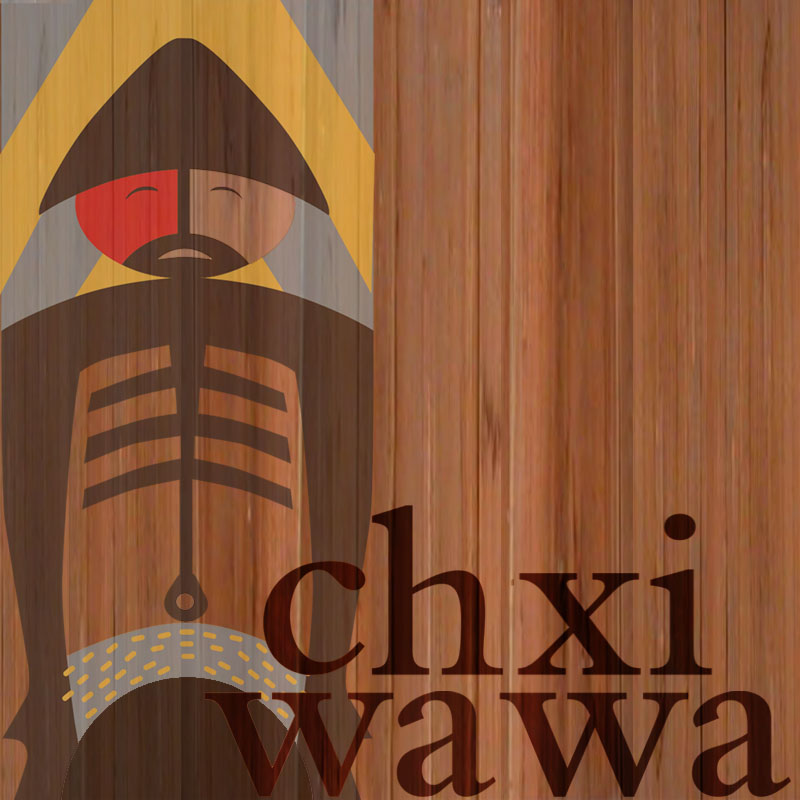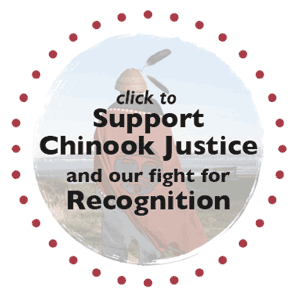Instead of celebrating Native American Heritage Day on Friday, Nov. 29, Chinook Indian Nation Chairman Tony Johnson said tribal leaders continue to focus on their fight for federal recognition as a sovereign entity.
Throughout Native American Heritage Month leading up to Nov. 29, Johnson said the tribal leaders’ focus centered around federal acknowledgement.
“As the elected chairman of the Chinook Indian Nation, it is the commitment of our tribal council and ultimately our committees and staff to remain very single-minded on the issue of federal acknowledgement,” Johnson said. “That does not mean we are not doing work every day to serve our membership or to further our cultural goals or community goals. But, sometimes things like commemorations, events that have importance and are important in the broader native community are places where we’re just not willing to put our precious energy.”
The Chinook Indian Nation includes roughly 3,000 members who descend from five Chinookan-speaking tribes west of Longview: the Clatsop and Cathlamet of present day Oregon and the Lower Chinook, Wahkiakum and Willapa of present day Washington. In order to be a citizen of the Chinook Indian Nation, a person has to descend from those tribes.
Achieving sovereign status would benefit the Chinooks in many ways, including funding and access for their own health care and education service programs as well as the ability to buy land and start businesses. Along with improved economic opportunities, the nation would have better access to natural resources at the mouth of the Columbia River, which they call home.
This is an ongoing fight for the Chinooks — over 120 years. During their fight to be federally acknowledged, the Chinooks are without a reservation but have been able to call their ancestral lands home. They also share many of the same experiences, positive and negative, as other recognized sovereign nations.
“We certainly have our own family experiences that make it hard for us to even say that we are not federally recognized,” Johnson said. “You know, that’s one of our great frustrations. And we say that often … How are we not federally recognized if our families were all forced to Indian boarding schools or all of our families have allotments or the heads of households have individual Indian money accounts? … How did we have blue cards that allowed us to hunt and fish in our territory? Through many of our lives, we just feel quite strongly about that reality, but we need to clarify the status because this gray area we’re living in is just not tenable.”
Johnson added that the Chinook Indian Nation has all of the same challenges a recognized sovereign nation does, but none of the means of fixing those problems because the Chinooks continue to live without recognition from the U.S. government.
At one point, the Chinooks believed their fight was over when, in 2001, the Chinook Indian Nation obtained federal recognition from the U.S. government. That victory was short-lived as their sovereign status was revoked just 18 months later by the George W. Bush administration. On July 5, 2002, a release by the Bureau of Indian Affairs stated that Assistant Secretary of the Interior for Indian Affairs Neal A. McCaleb signed a reconsidered final determination declining the Chinook Indian Nation’s acknowledgment. The reconsideration found that the January 2001 determination generated from improper interpretation of a 1925 claims act, a 1912 claims act and a 1911 allotment act.
Johnson previously stated in an opinion piece on the Chinook Nation website, the tribe spent decades collecting over 85,000 pieces of historical and legal evidence for the 2001 decision to be recognized by the Clinton administration. He stated the head of the Bureau of Indian Affairs at the time, Kevin Gover, an acknowledged Native law expert, told the Chinook tribe that once the Bureau of Indian Affairs in Washington, D.C., recognized the tribe as a sovereign nation then that recognition would be forever.
“In 18 months time, a Bush administration appointee, with no experience in Federal Indian Law, reversed our hard-won recognition,” Johnson wrote in his opinion piece on the Chinook Nation website.
According to an article on the Chinook Indian Nation website in 2021, the Quinault Nation appealed Chinook sovereignty with days left before the recognition’s comment deadline.
According to a 2002 news article from The Daily News, the government reversed its decision because of a political dispute between the Chinooks and the Quinault Nation, who the Chinooks said maintain control over natural resources in Grays Harbor and Jefferson counties.
According to a Prism article in 2023 by Luna Reyna, in 1856, the federal government negotiated the Quinault, Quileute, Queets and Hoh tribes into the Quinalt Reservation, while the Chehalis, Chinook and Cowlitz nations were negotiated into an expansion of the Quinault Reservation in 1873. Later, in 1905, the government divided the Quinault Reservation into 80-acre allotments assigned to individual people from the seven nations, resulting in individual Chinook citizens becoming majority landholders on the Quinault Reservation, “further fueling a rivalry between the two nations that goes back 10,000 years, according to Chinook leaders.”
According to The Daily News article, however, the BIA stated the decision was reversed because the Chinooks “failed to meet three requirements: maintaining political influence, comprising a social community and being identified as a tribe on a regular basis.”
In the Daily News article, Lewis and Clark College history professor Stephen Dow Beckham said, “the reversal is a throwback to decades-old attitudes against American Indians.”
Beckham researched the Chinook nation for 23 years, saying that thousands of documents written throughout history, as well as U.S. Supreme Court cases are able to prove the Chinook were an organized and recognized group, the Daily News article stated.
Johnson said a significant factor in today’s fight comes down to treaty understandings of the past.
“Chinook is not federally recognized today because [of] two treaty negotiations, one in 1851 in our territory down at Tansy Point — so that’s between Warrenton and Hammond on the south shore of the Columbia River — and then one at Cosmopolis up on the Chehalis River, that was in 1855,” Johnson said. “In both of those treaty negotiations, the government representative was sent to remove us from our lands. In both cases, the Chinook Indian Nation said no, we are staying with the bones of our ancestors.”
At this juncture, Johnson said it is up to legislators — Marie Gluesenkamp Perez, D-Skamania, and Suzanne Bonamici, D-Oregon, and all four of Washington and Oregon’s senators — to champion the Chinook Indian Nation Restoration Act, which would again recognize the Chinooks as sovereign. He added that the bill is fully developed after years of work.
“It’s been shopped around to our neighboring tribes and, you know, everybody’s on board with making this happen,” Johnson said. “So, at this point, that’s the work for us…”
Johnson encourages residents to contact their legislators and “say, ‘Hey, enough’s enough.’” you know, it’s time to once and for all recognize the Chinook Indian Nation and do it by championing the restoration bill for our community.”
Johnson said the Chinook Indian Nation believed it would have had the restoration bill introduced in this current Congress.
“But there was pressure from some constituents to expressly take away rights from the Chinook Indian Nation,” he said, although he didn’t want to specifically name those people. “All we’ll continue to say is, ‘Chinook has given up enough.’ It’s outrageous that anybody would ask the Chinook people at the mouth of the Columbia River to give up more. So the way the bill is written and what we are asking to have introduced is a bill that says that the bill does not grant or take away any rights from the tribe.”
Johnson said the Chinook people only want the same rights as other federally recognized sovereign nations and do not want to infringe on the rights of others.
“We just can’t be a third class, like, lower than the other sovereign nations,” he said. “… Marie has been good to work with over the years, but she needs to make good on her promise because in her very first campaign, she made a clear commitment to introduce and champion our recognition bill and we need her to make good on that promise and do it now. Because, every day that Chinook doesn’t have clear recognition is a day where there are unneeded problems happening in our community, you know, we have folks that are struggling and recognition would allow us to proactively assist those folks.”
Johnson said that, if federally recognized, the Chinook Indian Nation could improve the quality of life for all residents by improving access to health care, educational opportunities and natural resources.
“Chinook will do nothing but work to enhance the sturgeon, the salmon, the deer, the things that are important to everybody at the mouth of the Columbia River,” he said. “We will bring a better economy. We will bring jobs, and then [there is] the obvious thing of being able to have access to resources like other tribes do to be able to move ahead, like all the nations around us.”
To learn more about the over 120-year fight for federal recognition, visit chinooknation.org/recognition/.
The Chinook Indian Nation tribal office is located at 3 E. Park St., Bay Center, Washington, and can be reached at 360-875-6670 or by emailing office@chinooknation.org.








